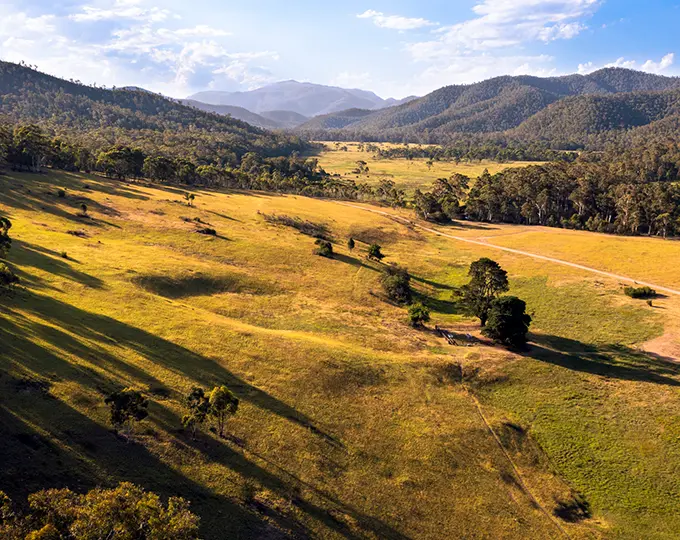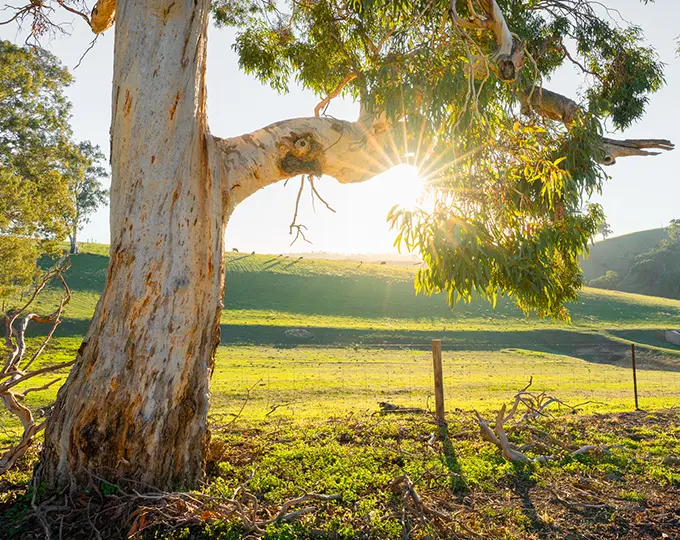OVERVIEW
Understand the financial considerations before undertaking an Environmental Plantings project.
Whilst an Environmental Plantings project may present a new and additional revenue source, careful consideration needs to be given to the operational impact. Often, those considering a project will look at the gross margin impacts relative to the various options at their disposal as a way of assessing the operational impact.
The following information provides eligible Australian landholders and farmers with an overview of financial considerations involved in establishing and managing an ACCU Scheme project. We will explore assessing operational impacts, enhancing farm equity, aligning your project with succession planning, implications for future land sales, navigating the tax considerations associated with carbon credits and look at diverse funding opportunities.
DISCLAIMER: This general information has been prepared by Landcare Australia (AR 1315198 of Australian Carbon Traders Pty Ltd AFSL 425512) for farmers and landholders who are eligible to be treated as wholesale clients. It does not take into account your objectives, needs or situation. ACCUs and derivatives are financial products. While we have outlined common benefits, risks and constraints here, we strongly recommend you seek independent financial and legal advice before acting on any decision to invest. Click here for further regulatory information.
The following points are general examples for consideration.
Equity
The land used for an Environmental Plantings project may increase in value due to the generation of ACCUs. This may enhance the overall equity of the farm.
Environmental Plantings projects can diversify income streams, potentially stabilising income during poor agricultural seasons.


Succession Planning
A carbon project is a long-term investment. Succession planning is an important part of making sure the project finishes successfully and that all parties involved receive their fair share of long-term benefits, whether they are financial or environmental in nature.
- Reforestation projects often have a long-term commitment (25 years), which can align with succession planning by providing a steady income stream for future generations.
- Projects can be integrated into family succession plans, ensuring that the next generation is involved in sustainable practices and benefits from the long-term financial returns.
Future Land Sales
When selling the land, the new owner must be willing to take on the permanence obligations associated with the ACCU scheme, which could affect the sale process.


Tax Implications
Revenue from the sale of ACCUs is generally considered taxable income. Farmers may need to account for this in their financial planning.
The increase in land value due to reforestation projects might be subject to capital gains tax upon sale, depending on the specific circumstances and duration of ownership.
Costs associated with establishing and maintaining the reforestation project may be deductible, potentially reducing taxable income.
We recommend seeking taxation advice from a registered taxation specialist.
Partnership Funding Opportunities
Cost is a key consideration when contemplating a carbon project.
There are numerous organisations with whom you can partner to co-develop projects on your land. These organisations may provide project establishment funding.
Other alternatives include green loan facilities from financial institutions or self-funding the project. Most important is to ensure you seek professional advice concerning the approach most suited to your individual circumstances.

Funding and ownership structures 101
Funding will be required to undertake a carbon project using your selected methodology. For the Environmental Plantings methodology, on-ground activities include exclusion fencing, pest control, site preparation, planting and maintenance. Some common funding sources within the market are outlined below:

Commission model
Under a commission model you enter into an agreement with a carbon developer or other third party. This model require less upfront investment for the project as the external party will take their payment relative to the ACCUs generated. This means that the more (or less) credits you generate, the more (or less) they get paid, so they’re committed to the project with you.

Fee for service
Carbon developers or other third parties may charge fee for service. Under this model more upfront investment is required since you are paying for the service at the time, before any cash flow is available from ACCUs generated from the project. However, this model allows you to keep more of the credits being generated from the project. Like the sale of any agricultural commodity such as livestock at saleyards, sales commissions are common, so the trade of carbon credits may have fees associated with it similar to using the assistance of external parties to broker a trade.

Traditional lender
Many farmers and agricultural operators have a long-standing relationship with their financial institution/bank, and many Australian banks are considering products specifically targeted at projects that can demonstrate a clear environmental benefit. The name given to this style of products is a green loan. They will look and operate like other debt facilities, sometimes with added benefits due to their ‘green’ purpose.

Private finance
This style of finance is often sourced from a non-bank lender. The type of finance operates like a traditional loan with a borrowing term, rate and potential security. Fundamental to this arrangement is a private agreement between two parties.

Offtake arrangement
Within the carbon market, some developers and financial institutions provide a structure commonly referred to as an offtake arrangement. Under this arrangement, they would agree to pre-purchase several yet-to-be-developed ACCUs, with funding provided for project establishment and an obligation to supply ACCUs at a future point in time. Offtake arrangements may be a classified as derivatives. As these are individually negotiated or over-the-counter arrangements, they are not exchange traded and have market risk, liquidity risk, credit risk, operational risk and regulatory risk. It is important that you seek independent advice before entering into an offtake arrangement.

Self-funded
For those with the financial means, self-funding a project may be a viable option. Self-funding a project is a significant commitment, and you should still seek appropriate financial advice with regards to this.